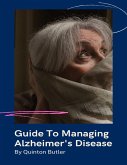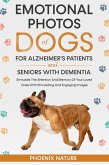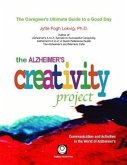The book begins with an introduction to Alzheimer's disease, explaining its definition, symptoms, and stages. It highlights the common behavioral problems associated with the disease and emphasizes the importance of non-pharmacologic therapies, such as music therapy, in managing these symptoms.
The effectiveness of music therapy is then explored in detail. The book explains why music therapy is particularly effective for individuals with Alzheimer's and how it stimulates various areas of the brain, including memory, cognition, and emotions. It emphasizes the role of music therapy in improving communication, social interaction, and overall quality of life for Alzheimer's patients.
The importance of the activity director in Alzheimer's care is highlighted, with a focus on the role they play in providing purpose, engagement, and enjoyment for patients. The book discusses various activities that can be incorporated into the care program, including music therapy sessions, singing, playing musical instruments, movement to music, and relaxation techniques. It also addresses specific behavioral problems such as agitation, anxiety, depression, and sundowning, and provides strategies for managing these issues through music therapy.
The book emphasizes the need for planning and preparation in implementing music therapy activities, including choosing the right music and creating a comfortable environment. It discusses the importance of measuring the quality of life, tracking behavioral changes, and documenting progress to evaluate the effectiveness of music therapy interventions.
In addition to the practical strategies and guidance provided, the book includes a chapter on the future of music therapy in Alzheimer's care, highlighting emerging technologies like virtual reality and digital therapeutics that can enhance the effectiveness of music therapy interventions using neural entrainment.
Dedicated to the author's parents, who both faced Alzheimer's disease, this book serves as a valuable resource for activity directors, caregivers, and anyone interested in understanding the benefits of music therapy in Alzheimer's care. It offers practical insights, evidence-based information, and a compassionate perspective on improving the lives of individuals with Alzheimer's through engaging and therapeutic activities.
Dieser Download kann aus rechtlichen Gründen nur mit Rechnungsadresse in A, B, CY, CZ, D, DK, EW, E, FIN, F, GR, H, IRL, I, LT, L, LR, M, NL, PL, P, R, S, SLO, SK ausgeliefert werden.









